Profile
Matthew Bainbridge
Work History
-
Education:
U of Saskatchewan, Canada 1996-2003. Baylor College of Medicine 2007-2011.
-
Qualifications:
BSc Microbiology, MSc Computer Science, PhD Structural and Computational Biology and Molecular Biophysics
-
Work History:
I used to work as a price-changer at a grocery store. I did some very large database development for IBM. Data analysis for the Saskatoon (my home town) cancer clinic. I worked in Vancouver (British Columbia) at a Genome Sciences Center and did a lot of interesting algorithm development. And I was a professor at Baylor College of Medicine.
-
Current Job:
Associate Director for Translational Clinical Reserach
-
Employer:
Rady Children’s Institute for Genomic Medicine
-
My Work:
I look at genetic data in sick kids and and try to figure out what’s going on.
-
Read more
Your genome is a recipe book that’s inside each one of your cells. It tells your body how to make YOU. There are about 20,000 different recipes (called genes) in this book. Sometimes the recipes have mistakes in them and they make a non-working ‘dish’ (called a protein or enzyme), sometimes the recipes are missing entirely. When this happens you can (but not always) get very very sick.
My work involves ‘reading’ (called sequencing) the recipe book and trying to figure out what is wrong with the sick kids. Because the recipe book is over 3 BILLION characters long we need to do this with computers. I write programs that help sort through all the sequencing data to try and find the small mistakes that is causing a kid to get sick.
Some genes are known to cause illness but some genes do not. A lot of my work is trying to see if a typo in a gene with no known disease could actually be causing a disease in a kid. This is called ‘gene disease discovery’. So far I have been involved in finding about 10 new disease genes. These genes might cause heart disease, or epilepsy (a disease where you sometimes shake uncontrollably) or cause the kids to be very sick and disabled. I often work with other scientists, parents and doctors to find these new disease genes and right now I’m working on 2 brand new ones.
You can read about some of my work below:
http://www.chron.com/news/houston-texas/article/Twins-recovery-signals-key-step-in-genetic-2082044.php
http://www.cnn.com/2014/03/20/health/ngly1-genetic-disorder/
http://www.nature.com/news/data-barriers-limit-genetic-diagnosis-1.12414
http://calderconnection.blogspot.com/2013/06/dellas-asxl3-genetic-research-published.html
-
My Typical Day:
Write computer code. Run software on sequence data and read about genes.
-
Read more
I often wake up in the middle of the next and think of a new way to analyze data. So usually the first thing I do in the morning is write computer code to see if my idea finds something new. (It usually doesn’t). I’ll then look at some unsolved cases that have been analyzes by my coworkers but couldn’t be figured out. This is the machine that actually sequences the kids. More of my coworkers actually know how to run it.
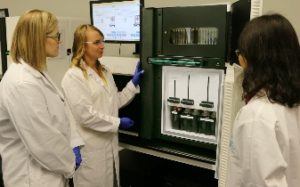 .
.My office is very boring but I get to run my code on a fairly large computer cluster.
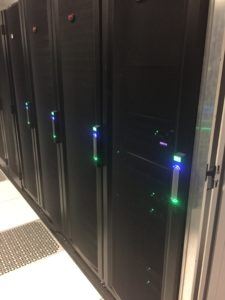
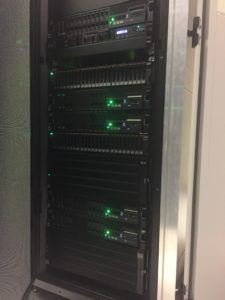
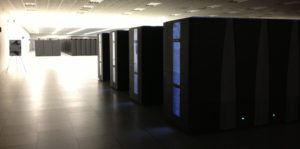 . The cluster is actually 10 miles away from where I work. I’ve never even been there.
. The cluster is actually 10 miles away from where I work. I’ve never even been there.Like most jobs I have lots of meetings. I’ll meet with coworkers, parents of sick kids, and doctors. I also do a lot of writing. Scientists write “papers”, which is how they tell the rest of the world new things we’ve found. We also write grants, which is how we ask the government for money to fund us so we can find new diseases and diagnose more kids.
-
What I'd do with the prize money:
I’d support the local science fair
-
Read more
I think science fairs are a great way to get kids excited about science. It’s also a good way for them to interact with scientists who they might otherwise never get to meet.
-
My Interview
-
How would you describe yourself in 3 words?
funny. stubborn. logical.
What's the best thing you've done in your career?
I discovered why a friend of mine had a sick kid and they named the disease after me.
What or who inspired you to follow your career?
My dad never gives me advice, but he did say I should get a PhD.
What was your favorite subject at school?
Physics, we had a really good teacher who’d make cannons and lay on a bed of nails and other crazy things
What did you want to be after you left school?
Genetic engineer. I still think it’d be a cool job.
Were you ever in trouble at school?
Elementary school: All the time for talking. High school: Installed video games on lab computers
If you weren't doing this job, what would you choose instead?
A cook! I really enjoy cooking. I bet it is less fun when you do it as your job, though.
Who is your favorite singer or band?
I named my dog after a Rolling Stones song, so them or Oasis.
What's your favorite food?
Easy, hamburgers.
What is the most fun thing you've done?
I got married in the ruins of a 1000 year old temple in India.
If you had 3 wishes for yourself what would they be? - be honest!
Photographic memory: it’d be so useful. Heaps of money, then I could do whatever research I wanted and not worry about funding. The ability to stop procrastinating at will: I always procrastinated – its a really bad habit.
Tell us a joke.
There are 2 types of people in this world. Those who can extrapolate from incomplete data.
-
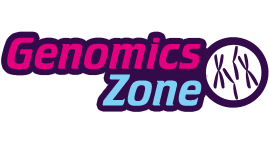
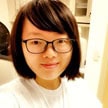
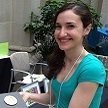
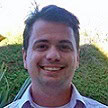
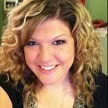
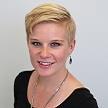
My Comments